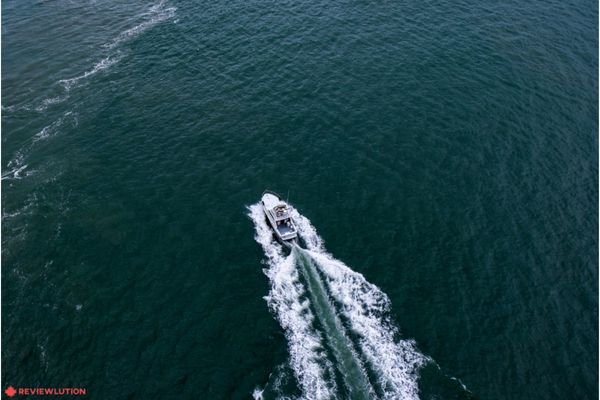How Much is Boat Insurance in Ontario? 2024’s Guide To Smooth Sailing
Purchasing a boat is quite an expensive investment. You could spend even more on repairs and accident claims without proper protection. Thankfully, here’s where boat insurance comes in.
But how much is boat insurance in Ontario? It’s safe to say boat insurance quotes are like ebb and flow, rising and falling, depending on different factors.
Keep on reading to find out more!
How Much is Boat Insurance in Ontario?
Whether you’re boating in one of Canada’s lakes or sailing on international waters, your boat insurance policy includes coverage.
According to the boating rules in Ontario, boat insurance covers water vehicles with a motor, such as yachts, paddle boats, power boats, sailboats, and pontoon boats. Moreover, Jet Skis and Wave Runners can also be insured.
Usually, you’ll need a separate boat insurance policy for motorized boats. Smaller, non-motorized boats used for recreation, such as kayaks, can be insured under your homeowners’ insurance policy.
After comparing prices from various insurance companies that provide boat insurance in Ontario, we determined that the average yearly cost is between $300 and $600. According to this, boat insurance in Ontario would cost you only around $29 to $50 per month.
What Does Boat Insurance in Ontario Cover?
When filing an insurance claim, you have two settlement options:
- Actual cash value coverage – replacement and depreciation costs, as well as the overall condition of the situation and the boat, its resale (second-hand) value and average life expectancy.
- Agreed value coverage – only the amount specified in your insurance policy agreement will be reimbursed, with no depreciation applied.
Your basic boat insurance should include the following benefits and liabilities:
- Collision damage – provides repairs or replacements for your boat in case of a collision.
- Property damage liability – entails the damage you cause with your watercraft to someone else’s boat, dock, or other property.
- Bodily injury liability – if someone is injured on your boat, this liability will reimburse the medical bills, legal fees, and recovery costs.
- Uninsured boater liability – intended to compensate you for injuries suffered aboard your boat due to another boat’s operator who lacks liability insurance.
- Guaranteed replacement cost coverage – if there’s a total loss of the vessel in the first three years, you will be reimbursed up to the amount required to purchase a new vessel of the same quality and company.
- Loss of use coverage – if a watercraft is lost or damaged due to an insured peril, your insurer will reimburse you for expenses incurred for the rental of a substitute vessel (within your policy limits).
If this happens during a trip/vacation, an additional reimbursement will be provided for accommodations, meals, or alternate modes of transportation (taxis or public transport).
- Emergency towing coverage – if an insured watercraft becomes disabled for any reason, expenses for towing, fuel delivery, or emergency labour that is required on the spot will be covered.
- Comprehensive damage and coverage – compensation and reimbursements if your boat is damaged in an incident other than a collision, such as theft or vandalism.
- Accidental pollution liability – in the event of a sudden and unexpected release of hazardous liquids from your boat, the insurer will reimburse all reasonable costs for salvage and environmental cleanup.
Some of these benefits will be included in your policy by default, while others can be added separately. Several popular boat insurance companies in Ontario offer the following extra services:
- vermin damage
- water-ski liability
- coverage for vessels purchased abroad
- protection against freezing
Let’s move on to the factors that will affect the price of your boat insurance in Ontario.
Factors That Determine The Price Of Boat Insurance in Ontario
Here are the critical factors which determine how much is a boat’s insurance going to cost:
Type of Boat
The boat’s brand, size and speed capabilities are taken into account when getting an insurance quote. Therefore, insurance for a larger and heavier boat will cost more. At the same time, faster boats are more expensive to insure since they are more prone to accidents.
Regarding boats with engines, an inboard engine will set you back more than an outboard one.
Finally, think about the kind of boat you’re buying. Although a second-hand boat might seem like a pretty good deal, it could be harder to find replacement parts if a boat is on the verge of becoming obsolete on the market. This is why insuring these boats costs more.
Value
Insuring a yacht will set you back significantly more than a small boat. Naturally, you want top-notch protection for your valuable piece of property. However, parts for big-budget boats are much more expensive, therefore increasing repair costs.
Furthermore, if you’re planning on taking out a loan to finance your boat, get an insurance policy that covers depreciation. This can lower your boat’s value.
Storage and Usage
Standard boat insurance offers coverage for your boat while it’s on water. If you want to station your boat at a marina, you’ll likely need protection against theft, vandalism, or other damage. Hence, you’ll need active insurance all year long, no matter where you store your vessel.
If you plan on storing your boat at home during the winter, ask your insurer to bundle your boat insurance with your home and auto insurance policies to spare some coins.
How frequently you use your boat during the year can influence your insurance premiums. Taking your boat on the water often increases its chances of damage.
Lastly, the location where you store your boat can also affect the price of your premiums. For instance, small lakes are safer for sailing than open oceans.
Previous Claims and Credit History
Your premiums will increase if you’ve been in several boating accidents and made claims on your insurance. Insurance companies usually perform background checks on your history at other insurance companies. Keep in mind that car accidents are just as important as boating accidents.
Safety Equipment
Insurance providers value boat owners’ attention to safety, meaning you could reduce your insurance costs if you have enough safety equipment on board. Still, life jackets and rafts are just the bare minima. You’ll also need to invest in a GPS system, radar, an automatic fire extinguisher system, and a depth finder.
Mandatory safety tools also include a waterproof flashlight and a sound-signalling device. To check out the full list, visit Transport Canada’s official website. Make sure you don’t set sail until these things are on board and check out your safety equipment beforehand.
Education
Educating yourself and receiving proper boat training can earn you some points at your insurance company. Insurance providers want to see that you can correctly handle yourself while sailing. Make sure you only take accredited courses, as these give you a better chance of a lower insurance rate.
Moreover, a longer boating experience will give you a better insurance quote since novice boat drivers are statistically more likely to get into accidents.
Why Do You Need Boat Insurance In Ontario?
Owning a boat insurance policy in Ontario is not required. Nevertheless, proof of insurance is necessary if you want to park or store your boat in a marina.
Using a marina in Ontario is impossible if you don’t have boat registration, which costs an additional $250. Boat registration is mandatory in Ontario for watercraft with over 10 horsepower, as well as for international sailing.
Most lenders will require you to obtain insurance before approving your loan if you decide to finance your boat.
Let’s quickly go over the main reasons why you should get boat insurance in Ontario.
- Storage and parking privileges at marinas
- Get covered in case of theft or other physical damages
- Secure financing for a new watercraft
- Secure your boat investment
- Independent financing that doesn’t reach your home insurance policy
- Injury coverage of medical bills and treatments for other people on your boat
- Guarantee the worthiness of your watercraft over a longer time frame
While investing in boat insurance in Ontario may not be necessary, it is the smart thing to do.
How Can I Lower The Cost Of My Insurance Policy?
Here are a few things to keep in mind if you want to lower the cost of your boat insurance policy in Ontario.
- Educate yourself to become a more experienced sailor
- Invest in safety equipment
- Invest in a proper and safe storage facility for your boat
- Keep the chances of an accident at the lowest
- Maintain a ‘clean claim history.’
Stick to these points and keep insurance claims to a bare minimum in all fields, as companies track your history of previous insurance claims.
Finishing Thoughts
Although not mandatory, a boat insurance policy is essential to protect your property, just like any other valuable possession.
The current market value of your watercraft plays a significant role in determining the cost of your boat insurance. Still, your credit score history and overall insurance claims are critical in lowering your premium.
We hope our extensive guide helped you learn more about boat insurance quotes in Ontario and understand the factors that affect them.
FAQ
Boating rules in Ontario require all boats to have all the following equipment if they are less than 6 meters long:
- Lifejacket or PFD for each person on the boat
- A buoyant heaving line that’s 15 metres long
- Manual propelling device (paddle, anchor) with at least 15 meters of rope or chain
- Bailer/hand pump to get water out of the boat in case of flood
- Sound-signalling device (whistle)
- Navigation lights
- A class 5BC Fire extinguisher for any craft equipped with an inboard motor, fixed fuel tank, and/or any fuel-burning cooking, heating or refrigeration units
- A waterproof flashlight or 3 Canadian approved flares
- A vessel license for outfitted craft
There are also additional requirements for boats longer than 6 meters, which are adjusted to the boat’s size and passenger capacity.
Both terms refer to how an insurance company approaches resolving a customer’s claim in the event of a loss.
In the case of an Actual Cash Value policy, you will be reimbursed for the value of your boat at the time of loss, considering all applied depreciation – the year of manufacture, amortization, how it was kept, etc.
If you have an Agreed Value policy, you will be given the agreed-upon value when the policy is signed.
Yes, but only to a certain extent. You will only receive boat damage and physical liability coverage if you choose to include your boat in your homeowner insurance policy.
If you’re wondering if you’ll be fined if your boat is uninsured, the answer is no. However, we’ve outlined some of Ontario’s most critical benefits of boat insurance.
Not only will you protect your investment, but you will also be protected from all potential damages.












